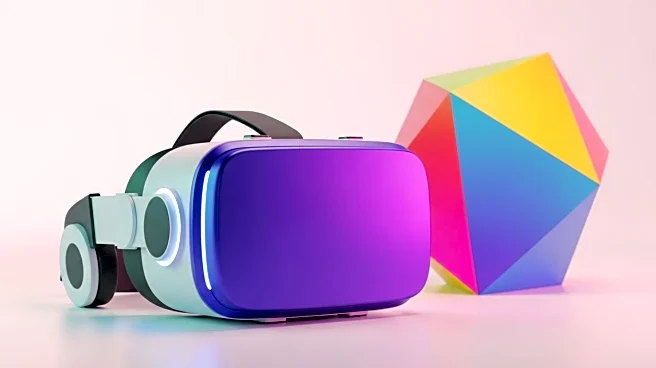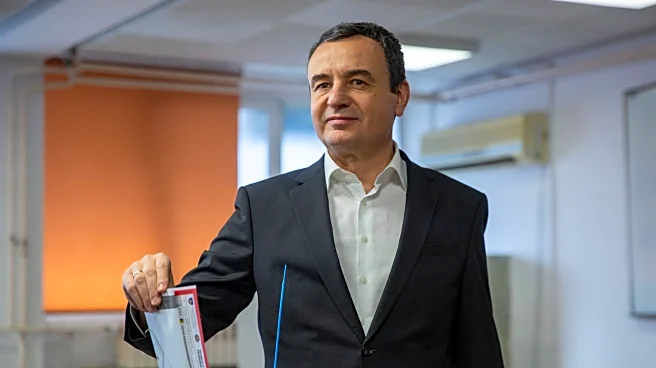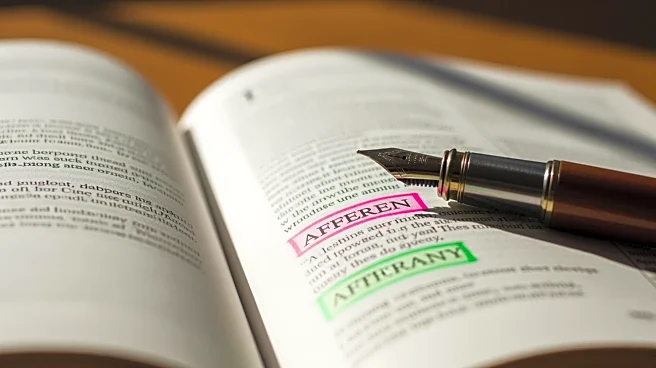What is the story about?
What's Happening?
Matthew Schmidt from the University of Georgia is spearheading the Gaming 4 Good project, which utilizes video game-based learning to engage neurodivergent students in STEAM subjects. This initiative aims to leverage virtual learning tools to support students with disabilities or learning challenges such as autism, ADHD, dyslexia, and dysgraphia. The project focuses on creating interactive learning experiences rather than merely delivering content, with the goal of improving educational outcomes and quality of life for these students. Schmidt's research at the PIXL Lab emphasizes the responsible use of emerging technologies to support diverse learners.
Why It's Important?
The Gaming 4 Good initiative highlights the potential of video games as effective educational tools, particularly for neurodivergent students who may face challenges in traditional learning environments. By fostering engagement and motivation through interactive and personalized learning experiences, the project could help bridge performance gaps and enhance educational equity. This approach aligns with broader trends in education that prioritize inclusivity and the use of technology to support diverse learning needs. The initiative also underscores the importance of adapting educational methods to meet the needs of all students, potentially influencing future educational policies and practices.
What's Next?
Schmidt plans to expand the Gaming 4 Good project to reach a larger audience, including partnerships with local schools, libraries, and community organizations. The initiative may explore additional technologies and platforms to further enhance learning experiences for neurodivergent students. As virtual learning continues to evolve, the project could serve as a model for integrating technology into education in a way that supports diverse learners and promotes meaningful engagement.

















